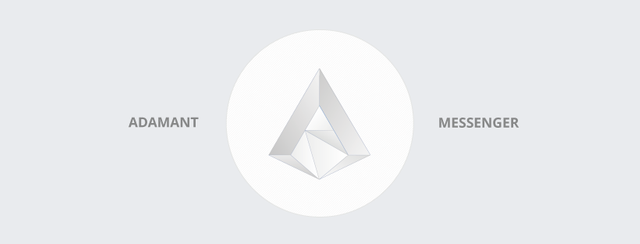Part 2: Adamant - How Adamant will allow User to chat and send money securely using the Blockchain
ADAMANT is considered the future of a secure and anonymous messenger service, which is encrypted with blockchain. As mentioned in the Part 1 of this series, ADAMANT is built on an independent blockchain. Here, let’s us take a quick peek into the ADM token forging(mining) process.
ADAMANT infrastructure is handled by a system of distributed servers that are running full nodes(blockchain). ALL servers’ support expenses are covered by ADM tokens forging:
- Transaction fees
- Rewards for blocks forging.
ADM FORGING
Registration
The first step for a node to participate in the forging process is to be registered as a network delegate and afterwards receive enough votes from ADAMANT users. The delegate registration fee is 3000 ADM. An ADAMANT user voting for another delegate is required to pay 50 ADM.
How DPoS is applied for Block forging
- Creation of ‘Delegates’:
DPoS scheme function algorithm is based on a voting process that occurs in real-time mode, with the use of the reputation level of the network members. Its aim is to create a list of trusted nodes or delegates. The elected delegates have the right to create and verify blocks for adding them to the blockchain and also prevent invasion into the process. These nodes forge blocks one after another in an order that randomly changes after each round. The delegates obtain or earn themselves ADM tokens when creating new blocks.
The number of tokens thus produced will be on a constant rise. With the system inception, it is assumed to be 0.5 ADM per 1 block, but each 6 307 200 blocks (approximately a year in real time), this number decreases by 0.05 ADM till 0.1 ADM. This forging reward increase is thought to motivate all delegates to manage the increasing network loads.
It is also thought, that the delegates will gain these rewards for 140 years approximately, after which the infrastructure will be fully supported by transaction commissions only.
- Block Forging by the ‘Delegates’:
The number of active delegates participating in blocks forging in 101. If their number is lesser than 101 then these votes will be allocated among the existing members which operate as a full node. The minimum amount of such nodes is 3. The whole system will become more stable and reliable with the increase in the number of nodes.
To forge a new block using DPoS, an election needs to occur in which 101 delegate members are chosen for the delegate pool in order to make all ongoing 101 blocks.
The voting is executed by nods (all wallet owners) automatically, based on the trust in particular delegates and their online uptime. After all delegates are chosen, they are given an order in which new blocks needs to be created. It takes approximately 8 minutes to create a queue of 101 blocks.
- Payment for Block Forging:
An important point to note, however, is that the payment for block forging starts only after the sequence of 2,000,000 first blocks are created. This guarantees that the initial network participants won’t get their tokens with the minimum amount of effort. This also keeps the interest among all new users alive and ensure equality of rights among all users on the blockchain.
The new block information is sent out with a 5 seconds interval. Each pack of new blocks is sent once from the source node and twice from each addressee for a fast distribution within the whole network.
Invalid transactions
All transactions which are not places within a new forged block is stacked in the transaction queue. This queue can contain up to 5000 transactions with a transaction lifetime of 1080 blocks. If during this period, the particular transaction does not get added to a block then it is considered to be unconfirmed(or) unauthorized and hence, is not acceptable to the blockchain. It gets deleted from the waitlist.
Blockchain state
In order to determine the consistency and relevance of the current blockchain’s state, broadhash is utilized. It is a checksum that is system-calculated upon the 5 latest transactions within the blockchain. It is used to quickly reaffirm that all full nodes handle the identical state of the blockchain database for the particular moment.
The payback of all transaction fees is equally distributed between the delegates which take their part in the block formation process and is made at the end of each 101st block round.
For more information on the ADAMANT Messenger check out their Website.
